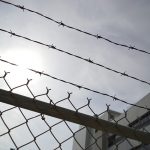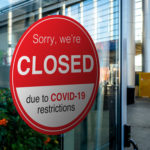Australian Body Needed to Investigate Wrongful Convictions

Legal experts have called for the establishment of a new national body to investigate possible wrongful convictions, which would work in a similar way to the review body in the UK. Flinders University law lecturer Bibi Sangha believes such a body is desperately needed to examine convictions based upon dubious evidence.
Questionable forensic evidence resulted in the conviction of Western Australian man Henry Keogh, who was recently released on bail pending an appeal after serving more than 20 years in prison for murder.
Legal reformist Dr Bob Moles believes Keogh’s case raises question marks about the work of forensic pathologist Dr Colin Manock, whose evidence was instrumental in Keogh’s convicting. “[The Court] said that the evidence that the pathologist thought that he had seen didn’t in fact exist,” Dr Moles notes, calling upon all 400 cases where Manock’s evidence was used in securing convictions to be reviewed.
Extent of the Problem
While there is no reliable information about the number of wrongful convictions in Australia, extensive US research has found that that unreliable identification, expert and forensic evidence has led to the wrongful conviction of over 1,700 people in that country; more than 300 of whom have been exonerated through the good work of the Innocence Project.
Data from the University of Michigan’s National Registry of Exonerations suggests that, since 1989, a total of 1761 people have been exonerated based on new evidence of innocence. These people had already served a combined total of 18,350 years in prison before their release. While capital punishment is no longer used Australia, 4.1% of defendants executed in the US were later shown to be innocent.
Ms Sangha points-out that those who are convicted in Australia, and had their statutory appeals refused (or could not afford an appeal at all), have little option but to write letters to criminal defence lawyers pleading for assistance. “For every one Henry Keogh that has got all that media publicity and people have been prepared to work pro bono for, there may be others who don’t have that same profile,” she said.
UK Model
Those convicted in the UK have access to the Criminal Cases Review Commission (CCRC).
The CCRC has extensive investigative powers and is independent from the courts. Those who apply have their cases initially assessed, before the body decides whether to undertake a full investigation:
“In terms of the number of applications they receive, the vast majority of them are rejected, it’s something like one in 20 cases are progressed further,” Ms Sangha says. “But when they refer the cases to the court of appeal 70 per cent of them are successful.”
In total, the CCRC’s has already led to the exoneration of 20 wrongly convicted people.
Criticism of Australian System
In an article published in the University of Cincinnati Law Review, Director of the Griffith University Innocence Project Lynne Weathered criticised the Australian justice system for lagging behind other developed countries in exposing wrongful convictions.
Like many others, she finds it unsatisfactory that there is no Australia-wide system for investigating such cases, and that many innocent people may presently be languishing in our prison systems.
Moving Forward
Much can be learned from the UK review model.
The grounds for potential review in the UK are broad: from new DNA test results, to unreliable expert evidence at trial, to police corruption and prosecutorial misconduct, to dubious identification evidence and incompetence by defence lawyers.
New South Wales did create a DNA review panel in 2007, but it was only given very limited investigatory powers and scope, and was ultimately disbanded in 2014.
There were proposals in South Australian to bring in broad, CCRC-type reviews, but they were ultimately rejected by parliament, with Attorney-General John Rau stating, “South Australia is not Texas. This state is not awash with wrongful convictions and the falsely imprisoned.”
He clearly ignores the few publicised cases of wrongful convictions in Australia, such as the dozen cases overturned as a result of police misconduct exposed by the Wood Royal Commission, and the cases of Ronald Ryan, Andrew Mallard, the Mickelberg brothers, John Button and the Chamberlains.
It seems Australian politicians prefer to turn a blind eye to the flaws in our criminal justice system which can, and indeed has, led to wrongful convictions in Australia, preferring to enforce a punitive system which is increasingly removing legal protections and safeguards.
In such an environment, and in the absence of a sufficiently funded and empowered review body, the incidence of wrongful convictions is only likely to rise.






